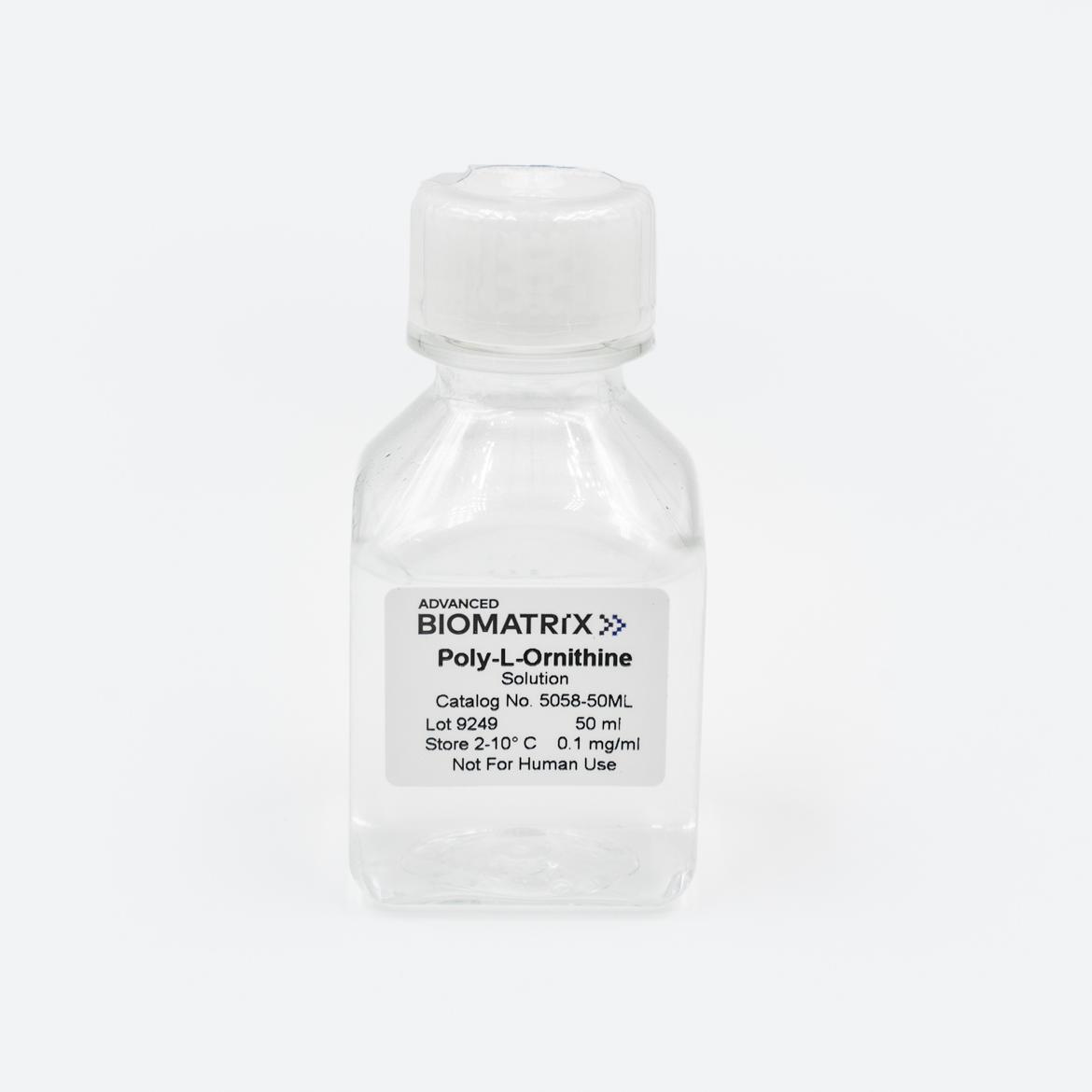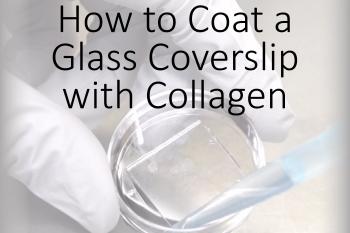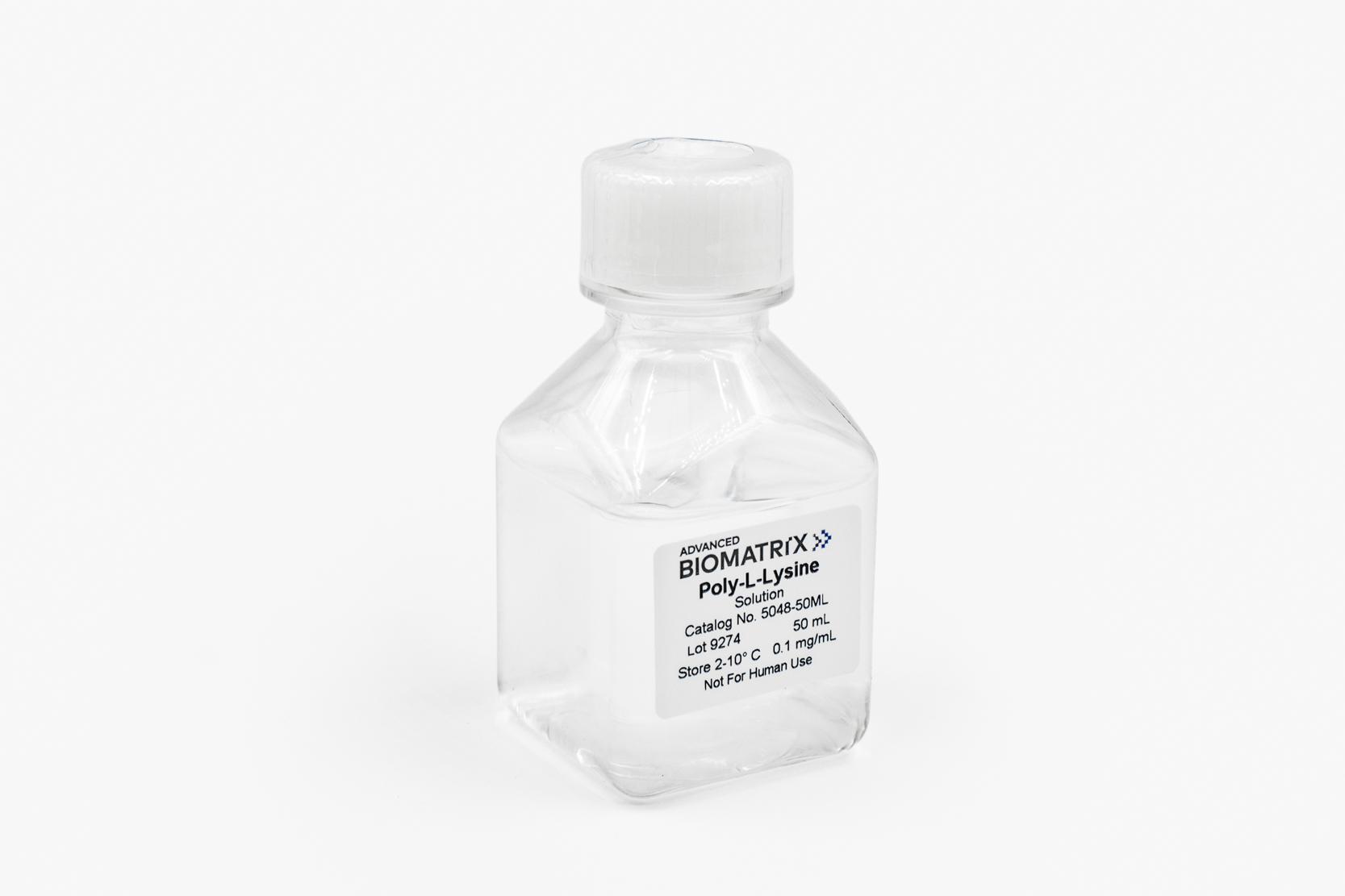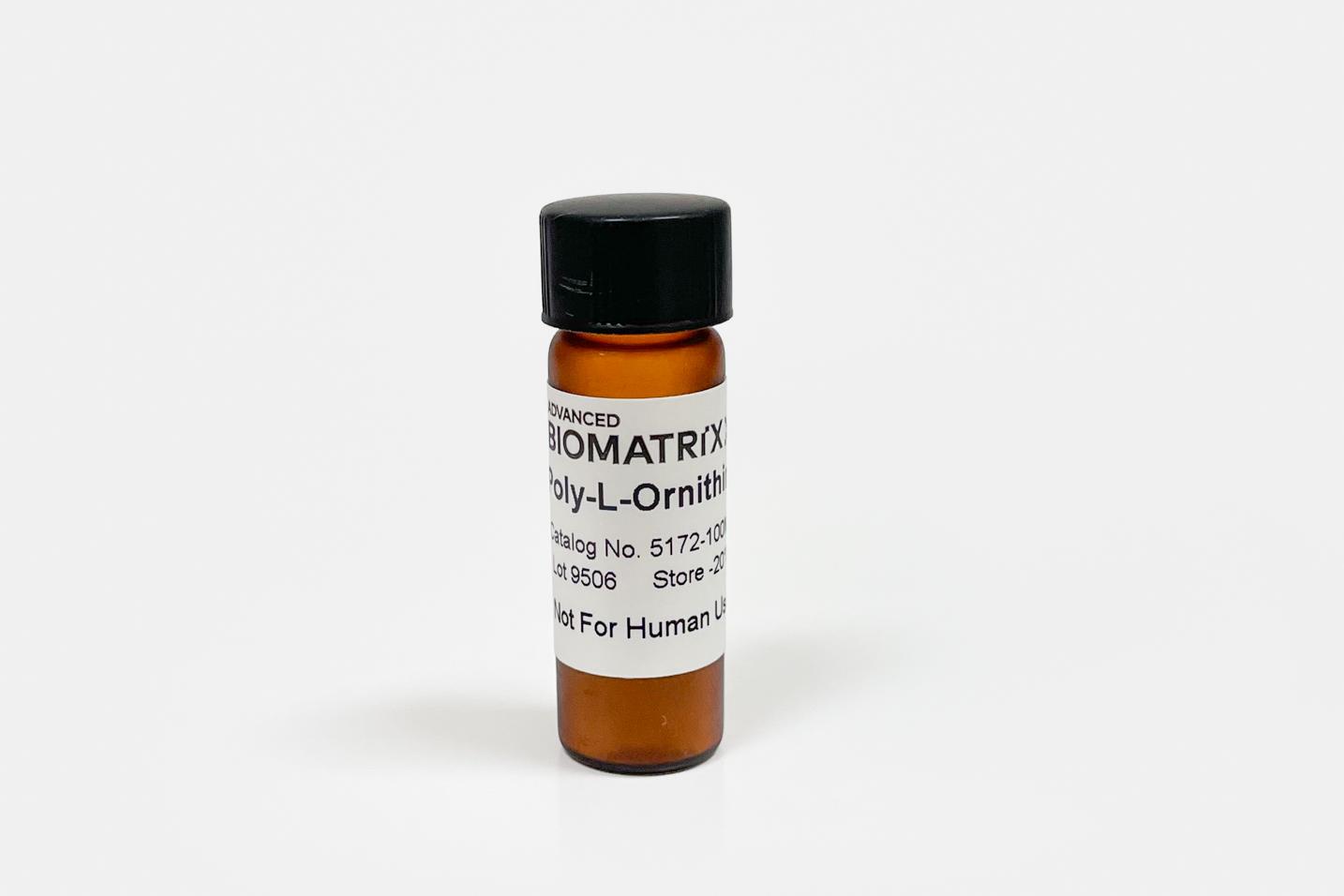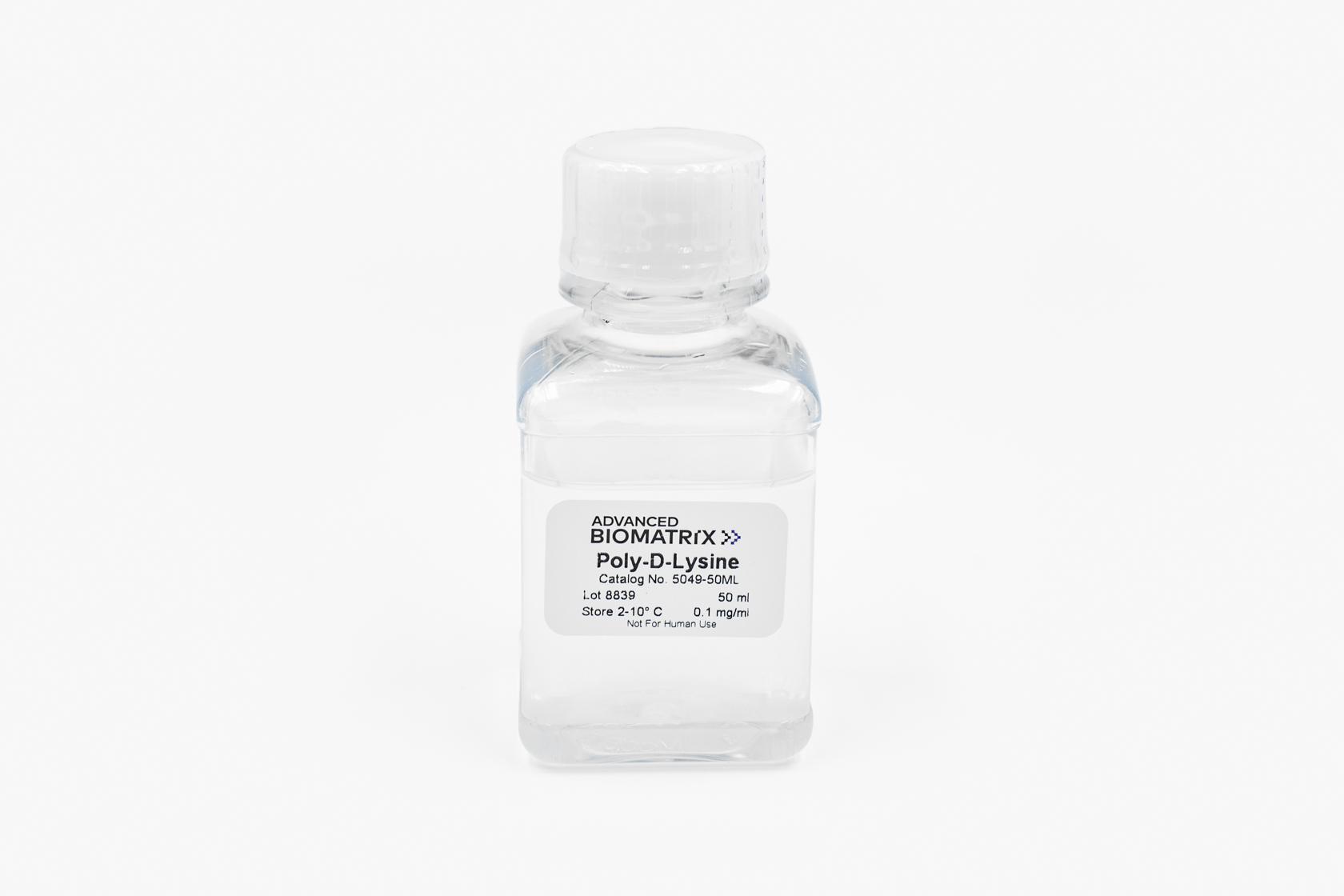-
Collagen
-
Type I - Atelocollagen
- PureCol® Solution, 3 mg/ml (bovine) #5005
- Nutragen® Solution, 6 mg/ml (bovine) #5010
- FibriCol® Solution, 10 mg/ml (bovine) #5133
- PureCol® EZ Gel, Solution, 5 mg/ml (bovine) #5074
- PureCol® Lyophilized, 15 mg (bovine) #5006
- VitroCol® Solution, 3 mg/ml (human) #5007
- VitroCol® Lyophilized, 15 mg (human) #5008
-
Type I - Telocollagen
- TeloCol®-3 Solution, 3 mg/ml (bovine) #5026
- TeloCol®-6 Solution, 6 mg/ml (bovine) #5225
- TeloCol®-10 Solution, 10 mg/ml (bovine) #5226
- RatCol™ for 2D and 3D, Solution, 4 mg/ml (rat) #5153
- RatCol™ High Concentration, Solution, 10 mg/ml (rat)
- RatCol™ lyophilized, 100 mg (rat)
- RatCol™ for Coatings, Solution, 4 mg/ml (rat) #5056
- Type I - Insoluble Collagen
- Type I - Bioinks
- Type II Collagen
- Type III Collagen
- Type IV Collagen
- Collagen Standard
-
PureCol® Collagen Coated Plates
- Collagen Coated T-25 Flasks #5029
- Collagen Coated 6-well Plates #5073
- Collagen Coated 12-well Plates #5439
- Collagen Coated 24-well Plates #5440
- Collagen Coated 48-well Plates #5181
- Collagen Coated 96-well Plates #5072
- Collagen Coated 384-well Plates #5380-5EA
- Collagen Coated 100 x 20 mm Dishes #5028
- MatTek Glass-Bottom Dishes
- MatTek Multi-Well Plates
- Collagen Scaffolds
- Collagen Hybridizing Peptides
-
Type I - Atelocollagen
- Tunable Stiffness
- CytoSoft™ Rigidity Plates
-
Bioprinting
- Support Slurry for FRESH Bioprinting
-
Bioinks for Extrusion Bioprinting
- Lifeink® 200 Collagen Bioink (35 mg/ml) #5278
- Lifeink® 220 Collagen Bioink (70 mg/ml) #5343
- Lifeink® 240 Acidic Collagen Bioink (35 mg/ml) #5267
- Lifeink® 260 Acidic Collagen Bioink (70 mg/ml) #5358
- GelMA Bioink
- GelMA A Bioink
- GelMA C Bioink
- Pluronic F-127 40% Sterile Solution
- GelMA 20% Sterile Solution
- Alginate 5% Sterile Solution
- Photoinitiators
- Bioinks for BIONOVA X
- Bioinks for Lumen X
- DLP Printing Consumables
-
Create Your Own Bioinks
- PhotoCol® Methacrylated Collagen
- PhotoGel® Methacrylated Gelatin 95% DS
- PhotoGel® Methacrylated Gelatin 50% DS
- PhotoHA®-Stiff Methacrylated Hyaluronic Acid
- PhotoHA®-Soft Methacrylated Hyaluronic Acid
- PhotoAlginate® Methacrylated Alginate
- PhotoDextran® Methacrylated Dextran
- PEGDA (Various Molecular Weights)
- Silk Fibroin, Solution
- PhotoSericin® Methacrylated Sericin
- Bioprinters
-
3D Hydrogels
- Thermoreversible Hydrogel
- Silk Fibroin
-
Type I Collagen for 3D Hydrogels
- PureCol® Solution, 3 mg/ml (bovine) #5005
- Nutragen® Solution, 6 mg/ml (bovine) #5010
- FibriCol® Solution, 10 mg/ml (bovine) #5133
- PureCol® EZ Gel, Solution, 5 mg/ml (bovine) #5074
- VitroCol® Solution, 3 mg/ml (human) #5007
- TeloCol®-3 Solution, 3 mg/ml (bovine) #5026
- TeloCol®-6 Solution, 6 mg/ml (bovine) #5225
- TeloCol®-10 Solution, 10 mg/ml (bovine) #5226
- RatCol® for 3D gels, Solution, 4 mg/ml (rat) #5153
- HyStem® Thiolated Hyaluronic Acid
- Methacrylated Collagen
- Methacrylated Gelatin
- Methacrylated Hyaluronic Acid
- Diacrylates
- Collagen Sponges
- Methacrylated Polysaccharides
- Spheroids and Organoids
- Extracellular Matrices
- HyStem / Hyaluronic Acid
-
Adhesion Peptides / Proteins
-
Recombinant Adhesion Proteins
- CD2, 0.5 mg/ml #5086
- CDH3, 0.5 mg/ml #5124
- CDH13, 0.5 mg/ml #5125
- CD14, 0.5 mg/ml #5089
- CDH18, 0.5 mg/ml #5090
- CD40, 0.5 mg/ml #5093
- CD86, 0.5 mg/ml #5096
- CD164, 0.5 mg/ml #5100
- CD270, 0.5 mg/ml #5127
- CD274, 0.5 mg/ml #5126
- CD276, 0.5 mg/ml #5123
- E-Cadherin (CD324), 0.5 mg/ml #5085
- ICAM2, 0.5 mg/ml #5107
- Adhesion Peptides
- Collagen Hybridizing Peptides
-
Recombinant Adhesion Proteins
- Reagents
- Assays
Poly-L-Ornithine Hydrobromide
Solution, 0.1 mg/ml
Catalog #5058
Poly-L-Ornithine Hydrobromide
Solution, 0.1 mg/ml
Catalog #5058
Poly-L-Ornithine comes with 50 mL of a 0.1 mg/ml sterile-filtered solution. Poly-L-Ornithine is a synthetic amino acid chain that is positively charged and used as a coating to enhance cell attachment and adhesion to both plasticware and glass surfaces. This product’s molecular weight ranges from 70,000 to 150,000 Da.
Product Description
Poly-L-Ornithine is a synthetic amino acid chain that is positively charged having one hydrobromide per unit of ornithine. Poly-L-Ornithine is widely used as a coating to enhance cell attachment and adhesion to both plasticware and glass surfaces.
The molecular weight of Poly-L-Ornithine can vary significantly with lower molecular weight (30,000 Da) being less viscous and higher molecular weight (>300,000 Da) having more binding sites per molecule. This product’s molecular weight ranges from 70,000 to 150,000 Da yielding a solution viscosity for easy handling while providing sufficient binding sites for cell attachment.
Poly-L-Ornithine surface coatings are designed to improve cell attachment, growth and differentiation of many cell types.
Coated surfaces will often improve cell attachment in reduced or serum-free conditions. This product is supplied in a sterile 50 ml package size at a concentration of 0.1 mg/ml.
| Parameter, Testing, and Method | Poly-L-Ornithine #5058 |
| Form | Solution |
| Package Size | 50 mL |
| Storage Temperature | 2-10°C |
| Sterilization Method | Filtration |
| Molecular Weight | 70,000 - 150,000 Da |
| Sterility - USP modified | No Growth |
| Cell Attachment Assay | Pass |
| Source | Synthetic |
| Shelf Life | Minimum of 6 months from date of receipt |
| Concentration | 0.1 mg/mL |
Directions for Use
Download the full PDF version or continue reading below:
Use these recommendations as guidelines to determine the optimal coating conditions for your culture system. To maintain sterility, perform all operations in a laminar flow hood.
- A typical working concentration is 0.1 mg/ml. If a different concentration is desired, transfer desired volume of solution from the bottle to a dilution vessel. Dilute to desired concentration using tissue culture grade water or PBS.
- Add appropriate amount of diluted material to culture surface. Typically, 1 mL per 25 cm2 is used. Rock gently to ensure uniform coating of culture surface.
- After 5 minutes, remove excess solution by aspiration.
- Thoroughly rinse surface with tissue culture grade water.
- Incubate and allow to dry at room temperature or 37°C, covered, for at least 2 hours.
- Introduce medium and cells to the culture surface.
- Store remaining Poly-L-Ornithine at 2 to 10°C.
Product Q & A
This product is manufactured solely from synthetic materials and does not contain any raw materials or substances derived from animal origin.
Product Applications
Matrigel Alternatives for Neuronal Assays
Matrigel Alternatives for Migration and Wound Healing Assays
Product References
References for Poly-L-Ornithine:
Chen, Eric YT, et al. "Activated charcoal composite biomaterial promotes human embryonic stem cell differentiation toward neuronal lineage." Journal of Biomedical Materials Research Part A 100.8 (2012): 2006-2017.
Boularaoui, Selwa Mokhtar, et al. "Efficient transdifferentiation of human dermal fibroblasts into skeletal muscle." Journal of tissue engineering and regenerative medicine 12.2 (2018): e918-e936.
Ergin, Ekin, et al. "Time-resolved fluorescence resonance energy transfer [TR-FRET] assays for biochemical processes." Current pharmaceutical biotechnology 17.14 (2016): 1222-1230.
Product Certificate of Analysis
No result for .
Product Videos
Product Disclaimer
This product is for R&D use only and is not intended for human or other uses. Please consult the Material Safety Data Sheet for information regarding hazards and safe handling practices.
